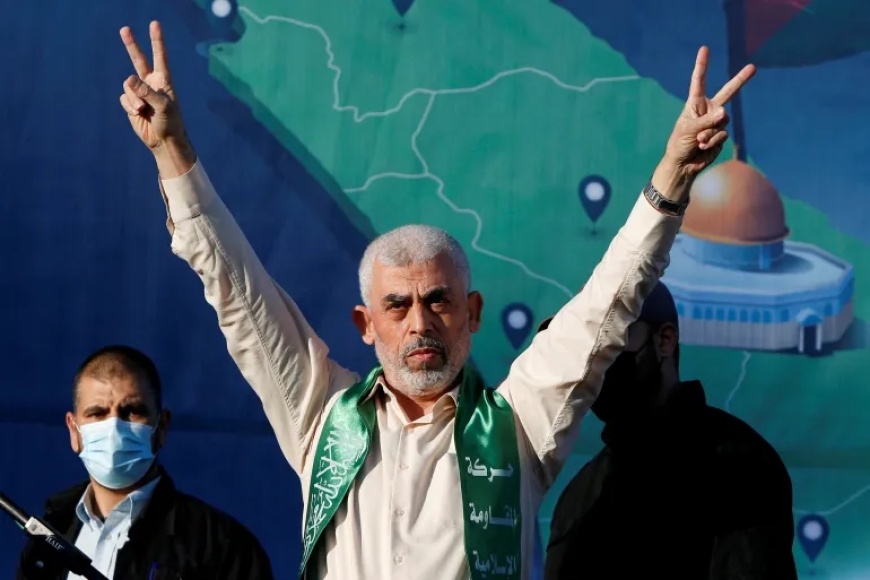Yahya Sinwar Appointed as New Hamas Chief Following Ismail Haniyeh's Assassination: A Deep Dive into the Leadership Shift
In a significant and strategic shift, Hamas has appointed Yahya Sinwar as its new political leader following the assassination of Ismail Haniyeh in Tehran last week. Sinwar, the former head of Hamas in Gaza, will now assume the role of the group's chief at-large, leading the organization from an undisclosed location amid rising tensions across the Middle East.

In a significant and strategic shift, Hamas has appointed Yahya Sinwar as its new political leader following the assassination of Ismail Haniyeh in Tehran last week. Sinwar, the former head of Hamas in Gaza, will now assume the role of the group's chief at-large, leading the organization from an undisclosed location amid rising tensions across the Middle East.
Haniyeh's assassination, widely attributed to Israel, has escalated the already volatile situation in the region. Although Israel has neither confirmed nor denied involvement in the July 31 attack, Iran has vowed retaliation, heightening fears of a broader conflict.
Sinwar, born in 1962 in Khan Younis, Gaza, is known for his hardline stance and deep involvement in the armed resistance against Israel. He was first arrested by Israeli forces in the early 1980s due to his activism at the Islamic University of Gaza. After his graduation, Sinwar co-founded what would eventually become the Qassam Brigades, Hamas's military wing. His leadership role within Hamas solidified shortly after the group was founded by Sheikh Ahmed Yassin in 1987.
In 1988, Sinwar was arrested again and sentenced to four life terms—amounting to 426 years—for his involvement in the capture and killing of two Israeli soldiers and four suspected Palestinian collaborators. He spent 23 years in Israeli prisons, during which he learned Hebrew and gained deep insights into Israeli politics and military strategies. His imprisonment ended in 2011 when he was released as part of a prisoner exchange deal for Israeli soldier Gilad Shalit, captured by Hamas five years earlier.
Upon his release, Sinwar quickly climbed the ranks within Hamas, becoming a key figure in both its political and military operations. His leadership was pivotal during Israel’s seven-week offensive against Gaza in 2014, and in 2017, he succeeded Haniyeh as Hamas’s chief in Gaza.
Sinwar's rise to power marks a significant moment for Hamas. Unlike his predecessor, Haniyeh, who was known for his public speeches and regional travel, Sinwar has maintained a low profile since the October 7, 2023, attack on Israel, which he is believed to have orchestrated. His appointment as the head of Hamas's political bureau is seen as a message of defiance to Israel, which has made no secret of its desire to eliminate him.
However, Sinwar’s new role presents several challenges. Leading Hamas from hiding will complicate communication with the group's operatives, overseeing political operations, and managing ceasefire negotiations. Despite these difficulties, Sinwar's history suggests he is well-prepared for the task. His experience in Israeli prisons has given him a nuanced understanding of his adversary, and his leadership of the Qassam Brigades demonstrates his capability to handle both military and political pressures.
In a rare 2021 interview with Vice News, Sinwar expressed a reluctant acceptance of armed conflict, stating that Palestinians have long sought peaceful means of resistance, only to be met with violence. He referenced the Great March of Return, during which Palestinians protested along the Gaza border in 2018 and 2019, only to face a brutal crackdown by Israeli forces that left over 220 dead. Sinwar defended Hamas's tactics, arguing that they are a response to Israel’s advanced weaponry and deliberate targeting of Palestinian civilians.













































